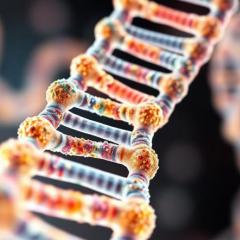In a first of its kind, seven early-career research grants have been awarded from a funding collaboration between the Metro North Office of Research, and three academic and research institutions.
Executive Director of Research Professor Scott Bell said this is an exciting step in fostering strong research careers early.
“Early career researchers can find it difficult to access funding, so this is precedent-setting for us,” Professor Bell said.
“The grants are an excellent way of building long-term collaboration between clinicians, researchers and academics, and to continually strengthen our research programs, results, and ultimately, outcomes for our patients.”
Research partners The University of Queensland, QUT, and QIMR Berghofer matched funding for the grants.
University of Queensland Diamantina Institute researcher Dr Timothy Wells’ project on infections in lung transplant recipients was awarded one of the grants.
“This grant is a fantastic opportunity to further our research with the team at The Prince Charles Hospital,” Dr Wells said.
“Our collaboration started by only investigating a small number of samples, however has already led to novel treatment for one post-lung transplant patient.
“This grant gives us the resources to expand our research to a much larger cohort.”
Another grant recipient was the investigative team lead by Dr Andrea Warwick of the Redcliffe Hospital, with molecular microbiologist Associate Professor Makrina Totsika (QUT), biomedical scientist Professor Mia Woodruff (QUT), and Dr Andrew Riddell, also of the Redcliffe Hospital, to develop new biofabricated meshes for use in pelvic surgery to treat incontinence and prolapse.
“There have been concerns about synthetic meshes and possible complications, with some products recently withdrawn,” Associate Professor Totsika said.
“So, we are looking at biofabricating meshes from biodegradable polymers that are optimal for application, with the right biological and mechanical properties and balance of structural rigidity and flexibility.
“We are also looking at incorporating antimicrobials to prevent risk of infection and seeding the patient’s own cells into the structure for better integration of the mesh to the patient’s tissue.
“This is an exciting and promising area for application of biomedical technologies and we are very pleased to receive this grant funding.”
The investigative team led by early career researcher Ms Tracey Mackle of Metro North Mental Health (MNMH) has received a grant in collaboration with Dr Lucia Colodro Conde and Professor Sarah Medland from QIMR Berghofer’s Psychiatric Genetics Research Group, and Associate Professor Susan Patterson, also of MNMH, on a project to help tackle mental health issues among new mothers.
“We will collaborate with Metro North to develop and test a screening tool for post-traumatic stress disorder (PTSD) in women during pregnancy and after birth,” said Dr Colodro Conde.
“Some women who experience unexpected complications or negative experiences during pregnancy and birth, are at risk of developing PTSD, and if undetected and untreated, this can have devastating consequences.
“We hope this screening tool will help health professionals to accurately detect symptoms of possible PTSD and to provide an early intervention.”
Summary of projects awarded grants:
- A study looking at how and where biofilms (micro-organisms) and neointimas (cellular sheaths produced by the body to coat artificial surfaces) form on cannulae (hollow tubes for insertion into the body) used in ECMO heart / lung machines, and how to re-engineer the surface of a cannula to reduce these.
- A study looking at establishing equivalent dosages using the strong painkillers fentanyl and morphine by inhalation versus intravenously, to avoid the need for the time-consuming insertion of a cannula. This study involves Dr Jayesh Dhanani, Professor Michael Reade, Associate Professor Victoria Eley and Dr Julian Williams.
- A study looking at bio-fabricating bio-absorbable meshes for use in incontinence, prolapse and other pelvic surgeries, to avoid the risks associated with non-absorbable synthetic meshes, which sometimes require more surgery to remove.
- A study looking at what the use of a new type of perforated peripheral intravenous catheter (PIVC) design compared to the use of a standard (non-perforated) PIVC has on patient outcomes.
- A study to promote accurate diagnosis and early intervention in perinatal post-traumatic stress disorder (PTSD) and to develop and validate a PTSD screening tool that can be used by various health professionals and researchers.
- A study to understand the prevalence and importance of—and treatment options for—Gram-negative bacteria that produce ‘inhibitory antibodies’ which protect the bacteria from attack by the body’s immune system, in the context of lung transplantation. This study involves Dr Chandima Divithotawela, Dr Timothy Wells, Professor Daniel Chambers and Amy Pham.
- A study to look at the prevalence and relevance of somatic mutations (genetic alterations acquired by a cell that can be passed on to cell progeny) in endometriosis lesions, which may be associated with more severe symptoms, physical appearance, or growth characteristics. This study involves Dr Akwasi Amoako, Professor Grant Montgomery, Dr Akram Khalil and Dr Keisuke Tanaka.
Media: Dr Timothy Wells, timothy.wells@uq.edu.au; Faculty of Medicine Communications, med.media@uq.edu.au, +61 7 3365 5118.



